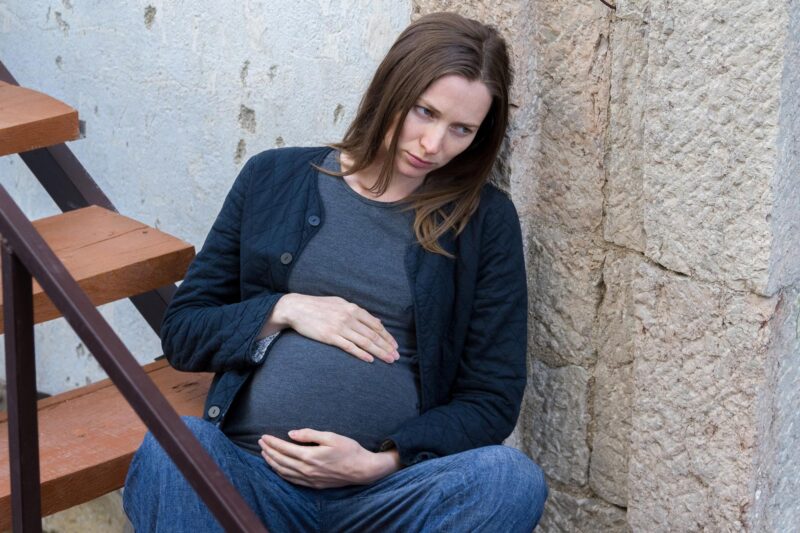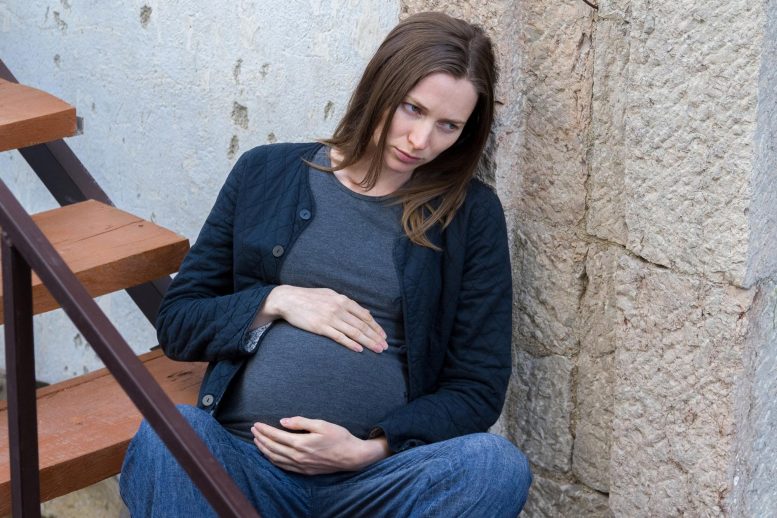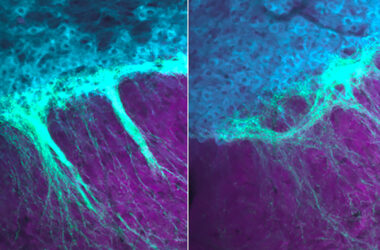Première étude montrant que les femmes enceintes et les femmes en post-partum souffrent de dépression et d’anxiété, même avec des médicaments.
- Ces femmes doivent être suivies en permanence pendant la grossesse et le post-partum.
- Le traitement peut être adapté pour soulager leurs symptômes.
- La dépression et l’anxiété périnatales touchent 20% des femmes.
Malgré l’utilisation d’antidépresseurs (inhibiteurs sélectifs de la recapture de la sérotonine), de nombreuses femmes enceintes présentaient des symptômes persistants de dépression et d’anxiété tout au long de leur grossesse et du post-partum, rapporte une nouvelle étude de la Northwestern Medicine.
L’étude a également révélé que les symptômes d’anxiété sont fréquents chez les femmes déprimées traitées, avec une aggravation des symptômes au fil du temps chez certaines femmes.
Il s’agit de la première étude à mesurer les différentes trajectoires de la dépression et de l’anxiété chez les femmes enceintes et les femmes en post-partum. Pendant la grossesse, 18% des femmes présentaient des symptômes dépressifs minimes, 50% des symptômes légers et 32% des symptômes cliniquement pertinents.
“Il s’agit des premières données longitudinales qui montrent que de nombreuses femmes enceintes présentent des symptômes de dépression et d’anxiété pendant la grossesse et le post-partum, malgré leur choix de poursuivre un traitement aux antidépresseurs”, a déclaré l’auteur principal, le Dr. Katherine Wisner, directrice du Asher Center for the Study and Treatment of Depressive Disorders et professeur de psychiatrie et d’obstétrique et gynécologie à Northwestern University Feinberg School of Medicine. “It lets us know these women need to be continually monitored during pregnancy and postpartum, so their clinicians can tailor their treatment to alleviate their symptoms.”
“Psychological and psychosocial factors change rapidly across childbearing,” said co-author Dr. Catherine Stika, a clinical professor of obstetrics and gynecology at Northwestern and a Northwestern Medicine gynecologist. “Repeated screenings will allow your clinician to adapt the type and/or intensity of intervention until your symptoms improve.”
Depression also impacts a woman’s infant. “This is key as children exposed to a depressed mother have an increased risk of childhood developmental disorders,” Wisner said.
The study will be published today (March 4, 2022) in Psychiatric Research and Clinical Practice.
The new research also showed that pregnant women taking selective serotonin reuptake inhibitors to treat their depression showed sub-optimal health, including elevated body mass index, infertility, migraines, thyroid disorders, and asthma. A history of eating disorders predicted elevated depression trajectory scores.
Perinatal depression and anxiety are widespread, affecting 20% of women during pregnancy and after birth. An estimated 500,000 pregnancies in the U.S. annually will result in women who have or will have psychiatric illness during pregnancy.
The prospective longitudinal observational cohort study, entitled “Optimizing Medication Management for Mothers with Depression (OPTI-MOM),” included 88 pregnant women. They completed assessments every four weeks from study entry until delivery and at six and 14 weeks postpartum. Participants were enrolled at urban academic medical centers including Northwestern University Feinberg School of Medicine, University of Texas-Galveston, University of Pittsburgh and a rural health center (Marshfield Clinic Health System in Wisconsin).
Reference: “Optimizing Medication Management for Mothers with Depression (OPTI-MOM)” 4 March 2022, Psychiatric Research and Clinical Practice.
The study was a collaboration with the University of Pittsburgh, Magee Women’s Hospital; The Ohio State University Wexner Medical Center; and the University of Texas Medical Branch.
Other Northwestern authors include Gabrielle A. Mesches, Jody D. Ciolino, Dr. Dorothy K. Sit, Katelyn Zumpf, Sheehan Fisher, Dr. Crystal T. Clark, Dr. Alfred L. George, Jr., Michael J. Avram, Laura J. Rasmussen-Torvik, Daniel L. Erickson and Jacqueline Gollan.
The research was supported by The Eunice Kennedy Shriver National Institute of Child Health and Human Development grants U54HD047891, U54HD047905, U54HD085601 and UL1TR001439; the National Center for Advancing Translational Sciences grant UL1TR001422; the National Institute of Child Health and Human Development grant 1K23HD087529-01A1 and the National Institutes of Health. Northwestern’s Asher Center for the Study and Treatment of Depressive Disorders, the Center for Pharmacogenomics and Northwestern University Feinberg School of Medicine also supported the research.




